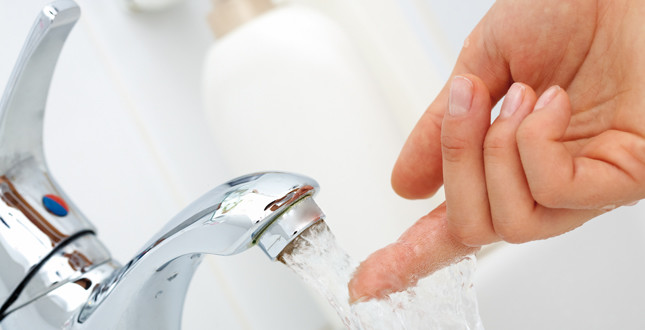


Explaining the benefits of choosing a hot water cylinder for a domestic heating solution, Isaac Occhipinti, Head of External Affairs at the Hot Water Association, discusses some top tips and vital information for installers to pass on to their customers.
We are all aware that there are various ways of producing hot water for use when we need it, and combi boilers have their place. However, while it is widely recognised that storage cylinders are more suitable for larger and higher occupancy properties, there is a further benefit which is not often championed.
It is common practice in the UK for all domestic hot water cylinders to be supplied with an immersion heater, this is primarily for backup in case the main boiler fails due to breakdown or a fuel interruption. This electric immersion heater will always charge the cylinder, perhaps over a longer period, meaning hot water is always available.
During the cold spell earlier this year, a village in Lincolnshire experienced interruption to its gas supply for a week or so and, although the heating interruption was inconvenient, the lack of hot water was the thing that the occupants missed most.
The resulting inconvenience meant a boiled kettle for shaving in the morning, and inconvenient travel to relations and friends for a shower if you were lucky. The inclusion of a storage hot water cylinder, with the standard backup immersion heater, would be a welcome addition to many installations.
Now that you can see the benefits of having a hot water cylinder with immersion heater, there are some simple rules to ensure that immersions are being used correctly.
Generally, if there is a boiler in the property, then it’s more economical to use the boiler to heat the hot water cylinder. Household immersion heaters have a 3kw output, while most boiler systems are capable of providing around 12kw to the cylinder, so the cylinder will heat up much quicker with the boiler.
An immersion heater is often used to accompany the primary source of heat. Explain to the consumer that it is best to keep the immersion heater turned off unless absolutely needed. The immersion heater should be used as a backup only, and not as the primary way of heating the cylinder.
Often properties that use electric water heating can be fed by an off-peak tariff such as Economy 7. Modern cylinders are highly efficient at retaining heat in water, so we would always recommend that consumers use timers so their immersion heater switches on during cheaper off-peak hours – generally through the night.
The immersion heater thermostat will switch off when water in the hot water tank reaches the set temperature. Setting the temperature at a lower level (above 55°c to meet legionella requirements) will save money.
Very few homeowners know that, to keep their hot water cylinder and immersion heater running properly and efficiently, simple maintenance procedures need to be performed. When installing a hot water cylinder, installers should take the time at handover to talk to consumers about the need for annual servicing.
By fully understanding how to correctly use and maintain their hot water system, consumers will be more likely to appreciate its relevance and act accordingly. Installers can also position themselves as trusted advisors, building a longer-lasting relationship, and securing future work later down the line.
If you'd like to keep up-to-date with the latest developments in the heating and plumbing industry, why not subscribe to our weekly newsletters? Just click the button below and you can ensure all the latest industry news and new product information lands in your inbox every week.